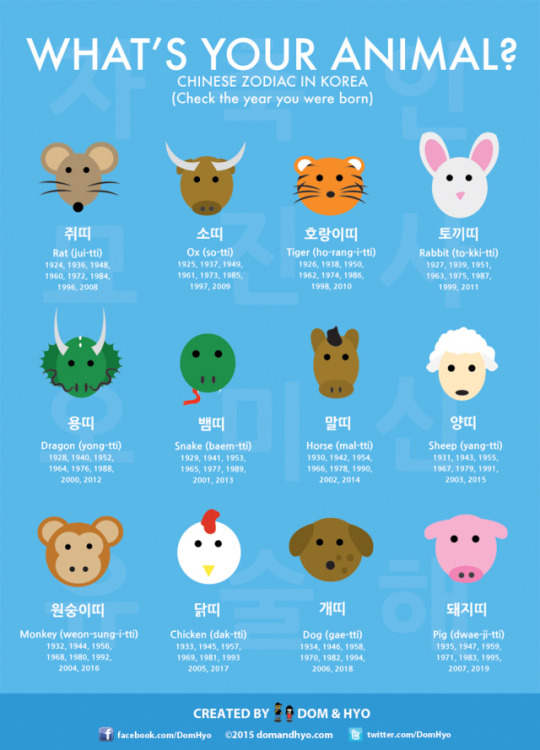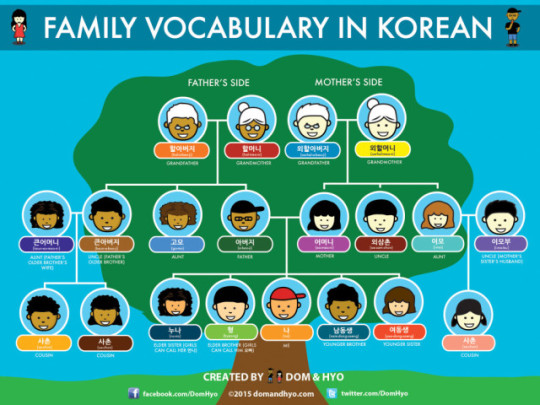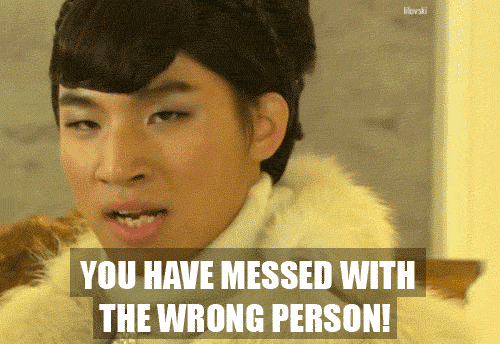#langblr
Had je tien miljoen
Wat zou jij dan doen?
Een feestje bouwen en je geld opdoen?
Ik kocht liters limonade
Honderd kilo chocolade
Om aan iedereen uit te delen!
Iedereen in België (en misschien ook wel in Nederland) kent dit liedje, maar wat zou jij doen als je tien miljoen euro had?
If you had ten million
What would you do?
Throw a party and waste the money?
I’d buy liters of lemonade
A hundred kilos of chocolate
To share with everyone I know
Everyone in Belgium (and maybe in the Netherlands as well) knows this song, but what would you do with 10 million euros?
Aangezien de schrijver van deze opdracht examens heeft, wil ze wel eens weten wat jullie tips zijn om de examenperiode door te komen! Studietips, snacktips, ontspanningstips… alles is welkom!
Because the writer of this task is studying for her exams now, she’d like to know what your tips and tricks are to get through the exam period! Everything is welcome: tips about studying, snacks, relaxing…
Stel jezelf voor! Vertel ons iets over je leven; waar woon je, wat zijn je hobby’s, hoe ziet je familie eruit….
Introduce yourself! Tell us a little bit about your life: where do you live, what are you hobbies, what does your family look like…
Hoi, ik ben Miri, ik ben 20 jaar en ik kom uit Duitsland. Op dit moment woon ik in Dresden, maar ik ga in October waarschijnlijk naar Aachen voor mijn Master. Mijn hobby’s zijn turnen en Nederlands leren. Ik leer het omdat mijn vriend uit Nederland komt en ook want het een leuke tal is.
Ik woon met mijn broer bij onze ouders. Mijn grote familie zie ik zelden want zij ongeveer drie uren weg van Dresden wonen.
Hoi, ik ben Miri, ik ben 20* jaar en ik kom uit Duitsland. Op dit moment woon ik in Dresden, maar ik ga in October oktober waarschijnlijk naar Aachen Aken voor mijn Mastermaster. Mijn hobby’s zijn turnen en Nederlands leren. Ik leer het omdat mijn vriend uit Nederland komt en ook want omdat het een leuke taal is.
Ik woon (samen) met mijn broer bij onze ouders. Mijn grote/uitgebreide familie zie ik zelden want zij wonen ongeveer drie uren weg van Dresden wonen.
*In formal texts, number up until 20 are normally written in full.
Hi! Great job, just a few minor things. Months in Dutch aren’t written with a capital letter, and you might want to look into the difference between “want” and “omdat” and their accompanying sentence structures. Apart from that I can’t really give you any tips, as you did very well!
Je zit vast op een eiland en je hebt twee voorwerpen mee die het dichtst bij je liggen op dit moment in het echte leven. Wat zijn die voorwerpen en waar zal je ze voor gebruiken?
You’re stuck on an island and you have the two objects that are closest to you at this moment in real life. What are those objects and where will you use it for?
Ik zou een kaars en mijn portefeuille bij hebben. Leuk als het eiland winkels heeft zodat ik lucifers kan kopen. Indien niet ga ik dood
Nothing to correct
Wat zijn je plannen voor de zomer? Wat heb je tot nu toe gedaan? Wat ga je nog doen? Vertel ons alles!
What are your plans for the summer? What have you done so far? What are you going to do? We want to hear all about it!
Na het afronden van het semester ga ik naar Brussel met mijn verloofde, en daar blijven we tot eind juni. Daarna zal ik een cursus internationale wetgeving volgen in het Verenigd Koninkrijk terwijl mijn verloofde gaat naar New York. We waren eerder van plan om samen naar New York te gaan (en mijn verloofde is nog een beetje boos denk ik, want we zien elkaar sowieso niet vaak), maar het is een belangrijke opportuniteit voor mijn carriere. ¯\_(ツ)_/¯
Na het afronden van het semester ga ik naar Brussel met mijn verloofde, en daar blijven we tot eind juni. Daarna zal ik een cursus internationale wetgeving volgen in het Verenigd Koninkrijk terwijl mijn verloofde gaatnaar New York gaat. We waren eerder van plan om samen naar New York te gaan (en mijn verloofde is nog een beetje boos, denk ik, want we zien elkaar sowieso niet vaak), maar het is een belangrijke opportuniteit kans voor mijn carrière. ¯\_(ツ)_/¯
you, my friend, are impressive.
Wat is je ochtendroutine? Wat is het eerste wat je doet als je uit je bed komt, wat eet je als ontbijt, hoe lang duurt het voor je klaar bent om naar je werk of naar school te gaan?
P.S. Sorry voor de weken zonder taak!
What’s your morning routine? What’s the first thing you do when you get out of your bed, what’s your breakfast, how long does it take before you’re ready to go to work or school?
P.S. Sorry for the weeks without a task!
ik woon vlak bij mijn universiteit, dus kan ik vlak voor het lesuur opstaan. Normaal gezien doe ik mijn contactlenzen in, een klein beetje sminken, haar borstelen, tanden poetsen, en voila. Niet zo ingewikkeld dus. Vroeger was ik wat ambitieuzer, maar nu kan het me nie schielen. Als er iets belangrijk plaats zou vinden dan zou ik mijn haren krullen, maar zo’n proces neemt zó veel tijd en loopt veel schade op en ik heb er niet veel goesting voor. Hoe ouder ik word, hoe minder tijd ik wil verspillen voor mijn uiterlijk.
ik woon vlak bij mijn universiteit, dus kan ik vlak voor het lesuur/begin van de les opstaan. Normaal gezien doe ik mijn contactlenzen in, een klein beetje make-up sminken*, haar borstelen, tanden poetsen, en voila. Niet zo ingewikkeld dus. Vroeger was ik wat ambitieuzer, maar nu kan het me nietschielenschelen. Als er iets belangrijk plaats zou vinden, dan zou ik mijn haren krullen, maar zo’n proces neemt zó veel tijd in beslag en je haar loopt veel schade op en ik heb er niet veel goesting voor. Hoe ouder ik word, hoe minder tijd ik wil verspillen voor aan mijn uiterlijk.
*schminken is painting actual figures and stuff like that on your face, like this: (although sometimes it’s also used to mean make-up)

you’re good! and I see Flemish, I like you! Anyway, some minor vocabulary stuff but that no big deal.
Kies één van je passies en vertel ons er een beetje over! Sinds wanneer heb je deze passie, waarom, deel je hem met iemand…
Pick on of your passions and tell us something about it! Since when do you have it, why, do you share it with someone you’re close to…
Mijn grootste passie is zeker(s?) het tekenen. Ik hou ervan sinds ik een klein kind was. Ik voelde me altijd eenzaam binnen taalrijke jaren en het was mijn manier om mezelf te uitdrukken en beter voelen. ik voel nog steeds een drang dat te doen als ik me slecht voel. ik denk dat zonder kunst zou ik dood ofzo zijn. Het geeft een betekenis aan mijn leven. ik kan me stom of lelijk of hoofdloos voelen, maar ik kan altijd mezelf door kunst genezen.
Mijn tweede grote passie zijn natuurlijk talen. ik ben stolt op mijn vooruitgang met talen en ik heb een grote fascinatie voor germaanse talen, hoewel ik makkelijk jaloers word op mensen die beter dan mij spreken, heb ik altijd er erg zin in, verder te leren en mijn kennis/vaardigheden te verbeteren! dit geeft ook en betekenis aan mijn leven !
iets anders dat ik graag doe is in de natuur lopen, ik doe dat als ik me slecht of gestrest voel, en ik luister naar muziek terwijl ik dat doe.
ik schreef teveel RIP Myrte
Mijn grootste passie is zeker(s?) het tekenen. Ik hou ervan sinds ik een klein kind was. Ik voelde me altijd eenzaam binnen taalrijke jaren* en het was mijn manier om mezelf te uitdrukken en beter te voelen. ik voel nog steeds een drang om dat te doen als ik me slecht voel. ik denk dat ik zonder kunst zou ikdoodzou ofzozijnof zo. Het geeft een betekenis aan mijn leven. ik kan me stom of lelijk of hoofdloos** voelen, maar ik kan mezelf altijdmezelfdoor/met kunst genezen.
Mijn tweede grote passie zijn natuurlijk talen. ik ben stolttrots op mijn vooruitgang (met talen) en ik heb een grote fascinatie voor germaanse Germaanse talen, hoewel ik makkelijk jaloers word op mensen die beter zijndanmij spreken ik, heb ik altijd er ergzinin om verder te leren en mijn kennis/vaardigheden te verbeteren! dit geeft ook een betekenis aan mijn leven !
iets anders dat ik graag doe is in de natuur lopen, ik doe dat als ik me slecht of gestresst voel, en ik luister naar muziek terwijl ik dat doe.
ik schreef teveel RIP Myrte
*it is not entirely necessary to specify that you felt lonely for a few years, but if you want to you can say something like “ik voelde me een aantal jaar eenzaam”
**this is not a word in Dutch and I don’t know what you mean? if you’d use it in everyday speech people would think your head got cut off or something
Don’t worry, I love to correct longer texts like yours! It’s really good, you made some minor mistakes but that’s it. Generally you make small mistakes in word order (most of which you would get away with because it does not sound completely wrong, but it is not the correct/most used word order).
Even if you feel like you know some slang from watching movies or anime, here’s a list of some essential words that will come in handy when you’re in a group of Japanese people, especially kids or youth, although many people of a more finely-aged demographic can often be seen using these words too.

1.壁ドン(Kabe don):
“Kabe-don” is a situation where a boy corners a girl against the wall and places his hand on the wall in a way that traps her.「壁ドン」とは男子が女子を壁際に押し寄せて、彼女の逃げ場を失くすことです。
2.リア充 (Rea ju)
Mashing together the words “riaru (リアル/real)” and “juu (充/to fulfill),” this term describes someone who has a fulfilling experience in their day-to-day real life.
「リアル(現実の生活)が充実している状態、またはそのような人物」を指すインターネットスラング。
使用例
リア充爆発しろ!
Just go blow yourselves up!
3.ワロタ (wa ro ta)
warota- slang for “I laughed.” In proper Japanese it would be waratta
wwww - the equivalent of lol. The person is laughing.ワロタとは、「笑った」という意味のインターネット用語です。
使用例
うそでしょ?わろたwww
Are you kidding me? It’s so funny! lol
4.wktk・ワクテカ・わくてか (wa ku te ka)
Used to indicate excitement and eagerness in anticipation of something to come: “Can’t wait!”, “(I’m) so excited!”, “I look forward to it!”
ワクワクと何かを期待し、心待ちにしている様子に追加して、待ちすぎて汗がでてきてテカテカしている。ワクテカのローマ字入力の頭文字を取り出して「w(ワ)」「k(ク)」「t(テ)」「k(カ)」と省略される。
使用例
これから映画見に行く!徹夜で激ねむだけどwktk!
I’m going to see a movie now.
I was too excited to sleep last night!
5.ググる (gu gu ru)
This is Japanese internet slang so it is mainly used in internet forums, means "Search on Google"
使用例
知らない言葉が出てきたら、とりあえずググるようにしてる。
I search on Google everything I found some words that I don’t know.
6.禿同 (ha ge doh)
Strong agreement.
他人の意見に対して、自分も同意見だ、同感だ、賛成だ、という意思表示に用いられ、
「激しく同意(はげしくどうい)」⇒「激同(はげどう)」⇒「禿同(はげどう)」
と言葉が省略され、意図的な誤変換の状態で定着した。
7.orz
A mark to show your disappointment (o is head r is arm and body and z is legs kneeing ○| ̄|_)
跪き頭を垂れる(頽れる)姿をアルファベットで表した日本発祥のアスキーアートである。 失望、落胆や絶望の表現。「 がっくり」の意。「 o」が頭・「r」が腕と体・「z」が跪いた腰から下の脚を表す。
使用例
只今見事に彼女にフラれました orz
I just got dumped by my girlfriend orz.
8.乙 (otsu)
Thank you for your hard work.When you appreciate someone’s hard work.お疲れ様です。「おつかれさまでした」→「おつかれ」→「おつ」→「乙」と変化していったものなのです。使用例「乙でした!」Thank you for your hard work!
使用例
「乙でした!」
Thank you for your hard work!

Every language has its own unique words created by cultural norms and even slang! Here are 10 Korean words cannot be translated to the English language.
1 띠동갑 Ttee-dong-kap
Relating to the Chinese zodiac, this term describes someone of the same Zodiac sign as you. For example, someone born in 1993 (the Year of the Rooster) would have the same “ttee-dong-gap” as someone who were all born in 1981, another Year of the Rooster.

2 촌/촌수 Chon/Chonsu
One of the most cherished elements of the Korean culture are family ties. These ties can literally be measured by “chon/chonsu,” which are basically a way of numerically measuring out these family ties. For example, the three ties between you and your uncle are you -> your parents -> your uncle. Thus, there are 3 “chons” between you and your uncle, so you will call your uncle as 삼촌(three chon).

3 한 Han
A cultural and historical concept that is often touted to be unique to Korea, “han” is the collective feeling of sadness and oppression. This is a cultural notion that can be attributed to Korea’s long history of attacks and invasions from other countries.

4 내숭 Nae-soong
You may have experienced quite a few “nae-soongs” before. This term basically means someone “fake,” often describing a girl who acts in a cutesy or “likeable” away around others, especially guys, then reverts back to her normal self when they’re not around.

5 얄미워 Yal-mi-wuh
This statement goes a step beyond the statement “I hate you” and is reserved for someone or something you truly detest or find irritating. For example, someone might complain about not being able to gain weight while you’re on a diet and you’d go, “You’re so yal-mi-wuh.”

6 눈치 Noon-chi
“Noon-chi” is the art of listening and staying in tune to someone else’s feelings, thoughts, and emotions to properly gauge and react to a situation. It takes a great deal of cunningness and people smarts to successfully do this. When people say you don’t have “noon-chi,” it usually means you lack tact or observational skills.

7 느끼하다 Neuk-kki-ha-da
This is an adjective that can describe food or people but has a slightly different meaning for both. When used to describe food, it’s describing a feeling and texture that’s greasy and oily, a taste you get sick of after while. However, when used for people, it almost means that they are “cheesy” or “sappy.”

8 훈남 & 훈녀 Hoon-nam & Hoon-nyeo
“Hoon-nam” describes a man that’s both physically and innerly attractive (a.k.a the perfect man). For example, he may be a handsome hard-worker with a sweet and honest personality. The female equivalent of this term is “hoon-nyeo.”

9 삐쳤어 Bbi-jeos-suh
This is the ultimate form of salty, almost childish sulking salty. Perfect for describing your mood when your parents don’t let you go to that K-pop concert on Friday night.

10 재수없어 Jaesu upseo
재수 means luck, fortune. Saying someone has no 재수 doesn’t mean that person is unlucky (not in this context), it means interacting with that person is unpleasant to the point where it is comparable to stepping on a dog poop or getting splashed by a car.It can basically be translated to ‘it sucks’, but in some situations,it also means 'What an asshole’.

Facebook:HelloTalk
Twitter:HelloTalkApp
Website:www.HelloTalk.com

You just came back from a 노래방 and your are kind of drunk. You have all food and sauses from the food you orded in your head and you need to 머리를 감아요 really baddly.
You go into the bathroom and 샾푸를 덜어요, after that you 머리를 숙이고 감아요. But there is the sauce still remained so then you try again but only 머리를 물로 적셔요 . You scrub your hair so much that 거품이 났어요.
You once again 샾푸를 덜어요 because you like to rinse and repeat.
But this time 눈에 샴푸가 들어갔어요!
Such a bad day today right?
Once more you 머리를 물로 적셔요 and then 머리를 말려요. After you 머리를 말라요 you 두피를 마사지해요
As you go to sleep you realise that you did not 머리를 빗어요 but you don’t care.. you are drunk.
8 Vocab 머리를 감다- When you wash your hair. 삼푸를 덜다 - When you dispense your shampoo 머리를 숙이고 감다- When your lower your head to wash your hair 머리를 물로 적시다 - Wetting your hair with water 거품이 나다 - When bubbles come out 머리를 말리다 - when you are drying your hair 눈에 ___가/이 들어가다 - when something goes in your eyes.After you had your shower you decided to 머리를 말리다 and 수건으로 몸을 닦아요. You did this quickly so you wouldn’t be late for work.
After you 수건으로 몸을 닦아요. You began to 바디 로션을 발라요 and 옷을 입어요.
Once your hair was dry you 머리를 빗어요. And 욕실에 들어갔어요.
VOCAB:
머리를 말리다 - When you want to dry your hair you do this action
수건으로 몸을 닦다 - You dry your self with a towl
옷을 입다 - It is the opposite of taking your clothes off
머리를 빗다 - you do this with a comb and place it on your head.
You suddenly wake up realizing that you have 늦잠을 잤어요. Oh no! What should you do!?
You quickly run into the shower and you turn on the shower. Once you get in you realize that 수압이 약해요, so you try and fiddle about with the shower head to see if it will pump out the water stronger.
When all of a sudden 수압이 세요. 수압이 너무 세요 so the water goes straight into your mouth. You slip and fall to bang your head against your glass shower wall.
As you recover you realise once again thay you need to get ready soon so you hold the shampoo and you start to 샴푸를 짜요 but nothing comes out!
Oh no!!! 샴푸 다 떨어졌어요!! So you try and find a quick subsitute for the shampoo
You try to 바디워시를 짜요 but 바디워시가 다 떨어졌어요.
바디클렌저를 짜요 but 바디클렌저가 다 떨어졌어요.
Oh this is not going well at all.
How can you 머리를 감아요 without any shampoo! AH 비누~
비누 solves everything right?.
So then you start to 비누칠을 해요.
And everything is fine… so you hope!
Vocab:
늦잠을 자다 - This is what happens if you miss your alarm clock. We all do it from time to time
수압이 약하다 - When your Shower pump is weak
수압이 세다 - When your shower pump is powerful
샴푸/바디워시/바디클렌저를 짜다 - So this is when you actually squeeze the bottle for it to come out
샴푸/바디워시/바디클렌저가 다 떨어지다 - If you squeeze it and nothing comes out then this is what it is called in Korean.
머리를 감아요 - putting your hands in your hear and then you scrub it with soap or water.
비누 - Soap
비누칠을 하다 - When you get the bar of soap and you scrub it around your face and your body
If you 잠을 설치다 you can feel grumpy and moody. There are many reasons that you might 잠을 설치다. Maybe it is because someone is 코를 골다. Or they are 잠꼬대를 하다. Or they might even be 이를 갈다.
Whatever the case it is pretty annyoing right. Because of these probles you are always 뒤척이다 all night.
Vocab:
잠을 설치다 (잠을 설쳐요). When you cannot sleep well because of a problem or a cause.
코를 골다 (코를 골아요) - When someone is sleeping and they make a horrible sound through there mouths and noze normally simbolised as ‘zzzzz’
잠꼬대를 하다 (잠꼬대를 해요) - An action used to describe a person or thing that will talk while they are sleeping.
이를 갈다 (이를 갈아요) - When someone is rubbing their teeth together.
뒤척이다 - when you feel uncomfortable while lying down so you turn in different positions until you feel comfortableHappy New Years, everyone!!!! I can’t thank you guys enough for your support since starting my new blog. There have been some hiccups along the way, but I’m learning and always growing thanks to you all! One of my resolutions this year is to be more transparent with you guys and really let you into my world and into my mind more, no matter how crazy it is! I have an insane mind but it’s full of ideas and tips for you, so I’m going to try to open it up to you guys more. I hope that you all had a good New Years! Look out for the masterlist of language learning blogs and Tumblrs! I’ll be posting it soon!
Feel inferior? Yeah, I do too sometimes. While it’s totally natural to feel inferior to others sometimes, it can really feel like fat crap. What should you do about these feelings? Should you give up? Hate the person you feel inferior to? In this post I share my personal experience with feeling inferior to other language speakers (not native speakers of my target language) and real practical advice about what to do and how to deal with these feelings.
My Experience
When it was time for my evaluation at my summer language intensive at PIB. Only a day after arriving (they did not mess around at this program), I found myself in front of the evaluators jet lagged, tired, hungry and incapable to forming words. Twiddling with my thumbs instead of producing sentences because I was unable to control my nervousness. There was a panel of roughly seven teachers staring at me blankly from across a round table with me at the end facing them directly. It felt like I was on trial or worse, my entire worth being judged like meat at an auction. I ended placing with the 2nd years, which is the lowest level they offered and I felt crushed at first, but I didn’t let it get to me. Then I met the others,…
Source:https://lilidoescriticallanguages.com/2018/12/13/two-ways-to-track-your-language-learning-progress/

Unfortunately for language students, language learning is not at all straight forward or linear. In fact, there is very little in your language journey that you share with another language learner. Yes, you could both be learning Spanish, but your language study processes could be drastically different. In addition, when you first start learning, there’s a lot of grey area around what is the best material for you, how long you should be studying per day, how much material to learn, and what goals to set. You may have bought a fancy new language learning planner and have no idea what to put in it! It can be so overwhelming that it can drive away self-learners within weeks or days!
Never fear! I’m not here to scare you (because I ain’t good at it). Instead, i’m here to learn how to learn Korean, Spanish, French, Italian, etc as efficiently as possible and provide study tips for you!
Why should you create language learning goals?
- There is no teacher, so you need to decide what you want to learn and by when
- Keeps you organized
- Keeps you motivated
- Helps you tell whether or not you are improving
- Helps you become more efficient with your time
- You’ll learn faster
You MUST set goals as a self-study language learner. Period. How to do so however, can be the struggle. So here I lay out two major ways to track your language learning to insure faster progress! Here we goooo!!

If you’re looking for a new way to study Chinese, here’s a method that I have used to learn Chinese or any other language quickly and effectively. If you’re self-studying or self-learning languages, using tv shows to learn languages is a fun way to learn natural language in an enjoyable way. I’m going to start giving you guys tv show episodes and providing the transcript in the native language to help you in your studies!! The instructions are down below. Simply follow the instructions, watch and learn Chinese!
If you have recommendations for shows you’d like me to do next, leave them in the comments!
Watch and Learn Instructions: Please Read
Intermediate to Advanced: Watch first ten minutes without stopping (without English subtitles). If you are able to understand at least 50%, then re-watch the first ten minutes without English subtitles and only use the Chinese subtitles while looking up any words you do not know.
Beginner to Lower Intermediate: Watch the first ten minutes without stopping (without English subtitles). If you are unable to understand 50%, re-learn the first ten minutes with English subtitles so that the learning process goes a little faster.Look up and write down any and all words you don’t know.
Hey guys so I REALLY want to find more language study, travel and general study Tumblrs and bloggers so please comment down below with a link to your Tumblr, blog, and/or other social media link so I can follow you and create a Masterlist of blogs for my readers here on Tumblr and on my blog!

Note: Hello, language learners! Just want to first apologize for a very late post! A lot has been going on since my move from China and it has been a doozy. Excuses aside, here is a fresh of the press post for your language learning needs.
Grammar Is a Nightmare
Grammar is always a nightmare for language learners. It doesn’t matter what language you’re learning, grammar is simply not always a basket of roses. It’s actually never a bucket of roses and the sooner you accept that,the better whole language learning process will go. Why is grammar such a nightmare for those of you who are bright eyed bushy tailed and new to language learning? Here’s a list:
- Because there are ‘rules’ to grammar, but there are ALWAYS exceptions.
- Sometimes the grammar itself makes no sense at all when explained in your native language
- You often forget them right after
- They may have specific usages that you must know of in order to avoid sounding like a plebe
- There are a million and get more and more complex as you progress
What Is Grammar
Stop your scrolling! This is important!! I’m not going to explain the complex intricacies of the concept of grammar or even try to simplify it because if you speak a language, any language, you know what grammar is. HOWEVER, it is important to remember as you study grammar is that it is the written expression of how a group of people understand and synthesize the world around them. It is also how you learn more about the culture of the language you are learning. So take care to learn grammar thoroughly.
So how do you get through this total nightmare with your sanity intact? Fortunately for you, I’ve been studying languages for ten years and can tell you EXACTLY what to do. So before you resume or begin studying, here is my recommended step by step guide to studying grammar.

Quick update: First of all, let me apologize for not updating in a while. I have moved from China to the USA and from Boston to Virginia and have now begun studying for the LSAT. Whew! I’m back to a regular routine and you guys should see regular posts from me now!
If you’re self-studying or self-learning Japanese, Chinese, Korean, Spanish, French or any language, there are so many reasons why a language learning method could fail that you could be completely unaware of. After all, there is no one identifying your shortcomings or problem areas in language study for you. You have to do it all by yourself. When I began to learn Japanese and Korean in high school I did not know this and it was pretty devastating. When things slowed down or I couldn’t remember Japanese words, I got so freakin’ pissed! Why wasn’t all my hard work paying off!? How long does this stupid crap take?! Why am I not fluent!? How do I learn Japanese faster?! I was rightfully frustrated, but at the wrong things. I was angry at everything else except how I was actually studying.
What I have come to understand is that the language learning method is just as important as the content you actually learn.
